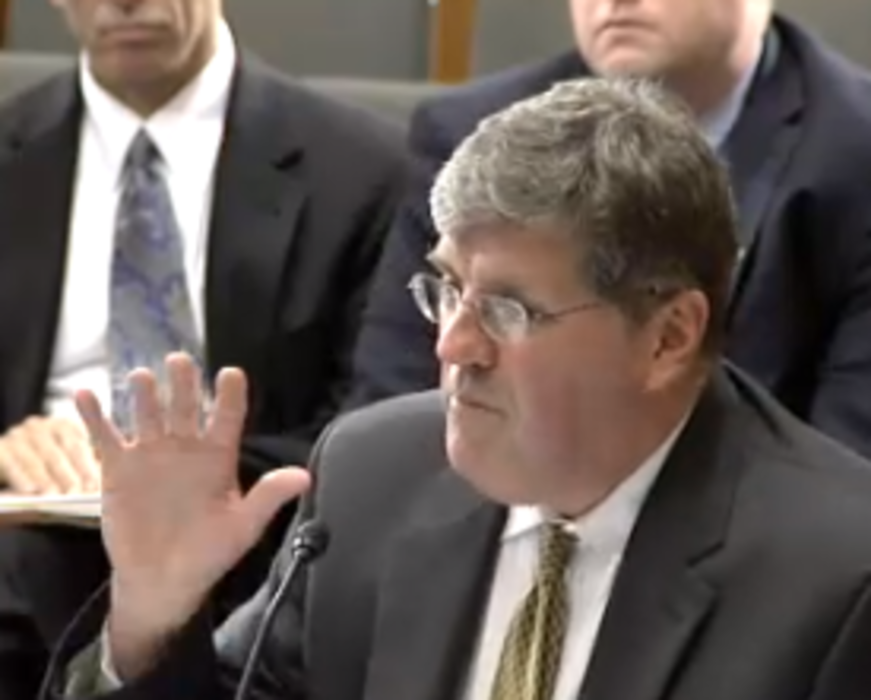At a Senate committee roundtable convened by postal reform advocate Tom Carper (D-DE) yesterday, perhaps the most sensible, quick-fix solution to the Postal Service’s financial ills was offered up by James Sauber, chief of staff of the National Association of Letter Carriers (NALC): Stop buying government T-bills with the retiree healthcare fund and put it in the hands of private investors instead.
Among a group of experts asked by Carper to name their top two suggestions for saving the Postal Service, Sauber had but one to offer. “Think about requiring the [Office of Personnel Management] to invest the fund in something more sensible. Healthcare costs are growing five to seven percent annually and Treasury securities are yielding two to three percent,” Sauber said.
Sauber pointed out that both the Pension Benefit Guaranty Corporation and Amtrak had established safeguards to allow them to invest healthcare assets in low-cost index funds that provided higher returns. Were the Postal Service to do the same, according to an analysis done at NALC’s behest, the Postal Service’s Retiree Healthcare Benefit fund’s funding percentage would rise from 94% to 118% over a decade’s time, Sauber said.
“There are risks involved, but the fund is so large, the risks are so low, and the horizon is so long that that risk is minimal,” Sauber held. “This is a significant policy innovation that would allow us to reduce pressure on raising postage rates and cutting services. And it just makes good business sense.”
The panel appearing before the Homeland Security & Governmental Affairs Committee included USPS Acting Chief Marketing and Sales Officer Jim Cochrane, Hallmark President Donald Hall Jr., Deputy Postal Inspector General Tammy Whitcomb, and U.S. Government Accountability Office Director Lori Rectanus. Matching Sauber for plain-talking common sense, Rectanus said that while innovation was welcome at the Postal Service, the agency historically had success when it stuck to its knitting.
Rectanus noted that advertising mail volumes appear to have stabilized as First Class Mail has declined 38% since 2000. And while she gave the Postal Service kudos for doubling package volume and revenue over the past four years, she noted that shipping was far less profitable than Standard Mail and that it would have to continue to grow at a significant pace to help fill the hole left by plummeting First Class Mail volume.
“They need to identify new initiatives and growth opportunities, but the caveat is that they need to do it in areas that make sense,” Rectanus said. “USPS is better positioned to manage postal-related initiatives rather than ones that go outside of the core business. We’ve seen them experience success with Negotiated Service Agreements, and there can be additional growth with NSAs. It requires good management costing to make sure they’re meeting their obligations.”
Hall, who represented the American Greeting Card Association as well as Hallmark, agreed that a policy of financial stabilization with the pension fund plus a renewed focus on postal operations could present USPS with a vibrant future. “First, it must work on stabilizing its very profitable core business. Both business and citizen mailers must have trust in the Postal Service,” said Hall, who suggested expanding business-like services to consumers such as digital tracking and bulk prices for holiday stamps.
Cochrane, who served as Chief Information Officer before assuming his new position last week, said the Postal Service’s most crucial imperative is finding the best way to use data. “Our challenge as an industry is to raise our bar and know more about customers and how to solve customer needs,” he said. “We can never go wrong if we’re solving customers’ needs.”
Missouri Democrat Claire McCaskill remarked that Senate colleague Carper was “obnoxiously focused on this issue—and I say that in a positive way. We’re looking for ways for the Postal Service to thrive for decades to come.”
The Postal Reform bill introduced last year by Carper–the former committee chairman and now ranking member–and retired Senator Tom Coburn never made it to the floor for a vote. No matter, Carper remains laser-focused on passing a postal reform bill, and sooner rather than later. “I want very badly to enable the Postal Service to use a 200-year-old distribution network effectively in the digital age, and do it in a way that doesn’t cost money for taxpayers,” he said.





